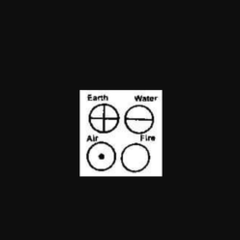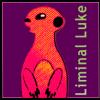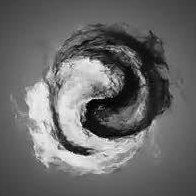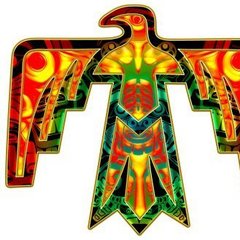-
Content count
12,146 -
Joined
-
Last visited
-
Days Won
333
About Taomeow
-
Rank
Dao Bum
Recent Profile Visitors
66,735 profile views
-

Anybody else having connectivity problems lately?
Taomeow replied to Mark Foote's topic in Forum and Tech Support
Same here. Loading very slowly most of the time of late -- this site only, so it's not something on my end. -

How do you know if a Qigong form truly fits you?
Taomeow replied to Kati's topic in General Discussion
I was aiming for three messages (although a longer post could aim for more.) 1) Any practice falls on the foundation of who you are. If you are a person with a sense of responsibility to yourself, aka self discipline, you are likely to transfer this attitude onto how you go about practicing qigong. That's the message I derive from Person A's experience. 2) You don't have to "believe" in it -- just give it a fair trial period and your results (or lack thereof) will speak louder than any pre-conceived ideas. Positive ones are likely to keep you coming back. Like Person B. 3) Different strokes. Some like rock, some can't stand it and only want opera, which rock aficionados might find extremely annoying. Many people have to watch their diet because they want to lose weight -- but I, for instance, have to watch my diet so as to avoid losing weight. Qigong can be "metabolized" (or not) in a similar vein -- individual preferences (ideally reasonable and sensible rather than whimsical) are allowed a say in what we seek and what we avoid. Person C in my example practices taiji neigong, which makes qigong very optional, and not wanting to practice it, quite reasonable. -

Effects of the Eight Brocades vs Five Animal Frolics
Taomeow replied to markern's topic in General Discussion
I see. Sounds are fine I think. But movements, the way I was taught, are very controlled. Of course there's a great temptation to get creative with this set, especially if you practice with others and a general playful mood takes over. The Monkey in particular makes such faces sometimes ...but control is harder and more beneficial than creativity, strangely enough. After all, the set does address the health of various organs, and one doesn't want creative organs, the ideal is precisely (and predictably) functioning ones. -

Ungrounded despite grounding – is this a mismatch?
Taomeow replied to Kati's topic in General Discussion
-

Effects of the Eight Brocades vs Five Animal Frolics
Taomeow replied to markern's topic in General Discussion
They do relate to specific organ systems, but have nothing to do with spontaneous qigong. On the contrary, they are high-precision moves with much attention to detail. -

Effects of the Eight Brocades vs Five Animal Frolics
Taomeow replied to markern's topic in General Discussion
It's not wrong, although AI is always excessively verbose (unless prompted not to be). A more to the point answer would be, Brocades suit beginners, Animals are considerably more challenging for beginners. -

How do you know if a Qigong form truly fits you?
Taomeow replied to Kati's topic in General Discussion
Maybe that's what it is. Person C has always viewed qigong as a remedy for something. Remedies are great and necessary, but not many of them are enjoyable, at least for Person C. Who has to debate with herself, "am I in the mood for this? Can I maybe do it later?" even before taking a vitamin C capsule. -

How do you know if a Qigong form truly fits you?
Taomeow replied to Kati's topic in General Discussion
Qigong needs to "hit the spot." Real life examples from my experience. Person A. An accomplished taiji practitioner for many years. Disciplined, dedicated, talented, competitive. Had a falling out with the teacher. Stopped practicing taiji altogether, which at the time struck me as cutting off her nose to spite her face. Found a different teacher, who only teaches qigong, meditation and a bit of related subjects ("feng shui light," very light.) A few years down the road, completely satisfied with her practice. I don't know what she's doing with the competitive side of her personality, but the rest of it has just flown naturally into the new practice. Person B. Has never been interested in anything Asian, and physical engagement with movement has been limited to an occasional game of tennis. An accomplished professional (medical doctor). Started having problems with her lower back later in life, which turned severe. Had surgery which made things worse. Lived in nonstop pain for several years. Was shown a few qigong exercises by a friend. Reluctantly gave it a try, mostly to humor the friend. Being also a naturally disciplined person, decided to give it a trial period of some length. Until then anything and everything she tried made things only worse, but this time at first she noticed her back doesn't feel worse from qigong, then, that it feels a bit better. Chalked it up to placebo yet kept practicing. Three years later, still practices, her back feels 90% better, she's able to go on long hikes now and is off pain medication. Still looking for an allopathic explanation. Person C. An accomplished taiji practitioner, with all-around taoist interests for many years. Has been taught many qigongs by her great teacher and at various workshops and seminars by other masters. Taught qigong to various audiences. Profoundly dislikes practicing it. Why? She has never been able to answer this question. She absolutely loves taiji and many taoist practices, she's an experienced meditator, and there was a time she would sit in full lotus for two hours with reverse breathing going on autopilot if her practice required it. Qigong? Please... no qigong. Why? Who knows. Doesn't hit the spot. -
I am the apple of every eye, I am the eye in every sky, I am the cross of every t, I am the dot of every i.
-
This is a depiction of the Hetu (河圖, “River Map”) and the mythic Longma (龍馬, Dragon-Horse). According to tradition, a dragon-horse emerged from the Yellow River carrying the Hetu diagram on its back — a cosmological pattern representing early foundational principles of taoism.
-
I'd love to have that job. Crocolepardoppotomizing them nine to five. There used to be laws of this kind in every culture. Eyeglasses makers guilds in Florence and Venice expelled their members with a lifelong ban on the profession if they were caught making lenses out of glass instead of quartz crystals (which actually helped treat eye disorders instead of merely serving as crutches for the eyes.) Today they're plastic...
-
I've experimented with making some African staples, notably injera, a kind of gluten-free bread. Need to revisit that, thanks for the reminder. Some authentic recipes use something like 40 various spices (a waitress in an Ethiopian restaurant proudly told me once while serving a fragrant and delicious goat meat stew. That restaurant is long gone of course...)
-
Ah, misheard words. As an indigenous English speaker you don't really know this pain. I would definitely run in panic if I assumed I would be greeted and treated by a cheeraptor.
-
Sadly, that's what happened with all my office chairs -- each new one eliminated its predecessor. There's never been enough room for two office chairs. My only redemption lies in the fact that nearly thirty years ago I gave an old office chair to a friend who needed one, and that old chair was already a very old chair when I got it from a thrift store -- but built like a tank, they don't make them like that anymore, haven't in ages. Recently that friend mentioned to me he still has it. To be honest, I miss that chair... have missed it through a succession of uncomfortable and/or flimsy and/or ugly Johnny-come-latelies that followed. I misunderstood it back then, back when I was one of the people who believe that "new" means "better." But now I know. The staying power of authenticity...
-
I got lost even in my own family tree when my cousin sent it to me... and it's only a thousand years old. I keep telling myself I will study it in depth someday... As for the Mormon genealogy, I dunno... they even wrote their own bible placing Jesus square in America, so what's to stop them from writing "alternative" genealogical databases? Then again, their bible was dictated by God if I remember correctly, so what's to stop Him from dictating a genealogical database too while at it?..


























